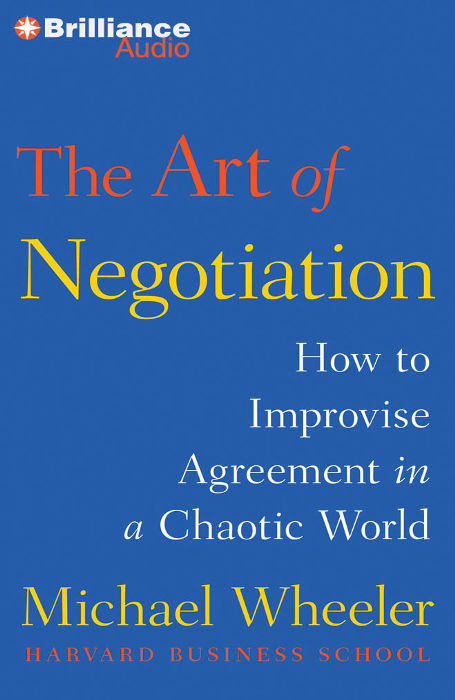Books
Michael Wheeler
The Art of Negotiation
How to Improvise Agreement in a Chaotic World
What if the key to successful negotiation isn’t rigid planning, but the ability to improvise? In The Art of Negotiation, Michael Wheeler reveals how master negotiators thrive in unpredictable environments by adapting, learning, and influencing on the fly, rather than sticking to a predetermined script.
Wheeler’s book challenges the traditional notion that negotiation is a linear process with clear steps and fixed outcomes. Instead, he argues that real-world negotiations are often messy, fluid, and shaped by uncertainty. Drawing on research from Harvard Business School and vivid real-life examples, Wheeler shows that effective negotiators treat each encounter as a process of exploration. They remain flexible, respond to shifting dynamics, and use creativity to find solutions that might not have been apparent at the outset.
The book offers practical strategies for dealing with chaos and complexity at the bargaining table. Wheeler emphasizes the importance of preparation, but also the need to be ready to pivot as new information emerges. He provides tools for reading the room, managing emotions—both your own and others’—and adjusting tactics in real time. Throughout, he illustrates how improvisational skills can help negotiators overcome deadlocks, build trust, and achieve agreements that satisfy all parties involved.
Wheeler’s approach is grounded in the idea that negotiation is less about winning or losing and more about collaborative problem-solving. He encourages readers to see negotiation as an ongoing learning process, where every interaction is an opportunity to adapt and improve. By focusing on flexibility and creativity, The Art of Negotiation equips readers to handle even the most chaotic and high-stakes situations with confidence.
The Art of Negotiation stands out for its fresh perspective on a familiar subject, making it a valuable resource for anyone—from business professionals to diplomats—who must navigate uncertainty and complexity in their negotiations. Wheeler’s insights remind us that the best agreements often come from the ability to improvise, listen, and respond thoughtfully to whatever unfolds at the table.

